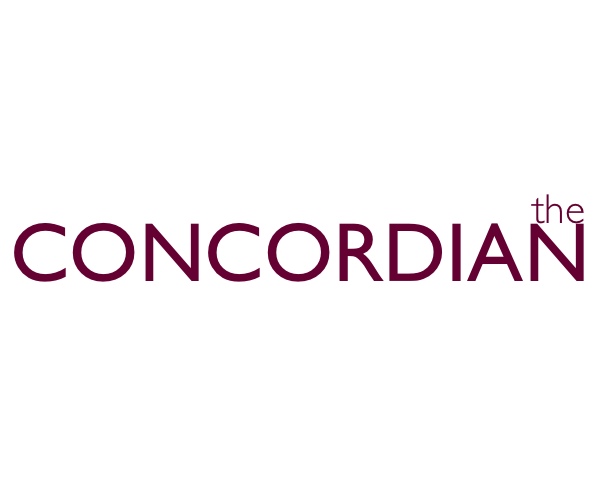Call it a paradox, call it an oxymoron, call it nonsensical or downright stupid—the words contained herein will opine on the folly of opinions, particularly those vehemently guarded.
As almost-adults grasping desperately in those always-awkward adolescent years for some semblance of an individualized identity, the safety in the inspiring imperative to be oneself and stand up for one’s beliefs provides a sense of security that can scarcely be done without. Indeed, there is a healthy repertoire of bad lyrics dedicated to inspiring the world to do so.
It is equally tragic and fortunate that the college experience provides a counter-imperative, a call to grow up, broaden horizons and think independently. It is perhaps more fortunate for Concordia students that at this institution of the liberal arts tradition, reflection is so deeply and universally cherished as a pivotal aspect of any worthwhile education that “community time” is preserved to provide a period of reflection in the midst of the everyday hustle.
As national Coming Out Week draws to a close, reflection is in high demand. “Love is love” shirts abound, “sin is sin” borne by a small-but-proud few, there are few other times of the year when the desire to stand tall and defend closely-held and impassioned beliefs is so prevalent on the campus. Even SGA has gotten in on the action by officially throwing themselves into the ring.
To truly step back far enough and to reflect like the good liberal arts students Cobbers are trained to be would be to ponder a thought almost as unorthodox and crazy as the “sin is sin” movement is popularly cast: opinions are not facts.
While a fairly simple concept at its core, the distinction between fact and opinion is too often forgotten. Certainly most may understand, but that understanding is relegated to the abyss of abstraction without application.
The logical progression of the argument is not, as some may assume, that everyone should get along and respect everyone’s opinions. To be sure, disagreement and debate are necessary tools for public discourse and, in turn, societal progression. To maximize the benefit of that discourse, however, a line must be drawn between two purposes: namely, the desire to find truth and the desire to win the argument.
The desire to win begins with decision. Once one decides that he or she believes one thing, an incentive is born to defend that principle at the risk of being proven wrong. Insofar as there exists a natural human tendency to resist being wrong, the feet get firmly planted and the mouth begins to dominate the ear.
Taking the love vs. sin example, both sides are guilty. First, however, it is worth noting that SAGA started this tradition long before the “sin is sin” backlash and is respectably carrying on with the celebration they founded with little regard for the ideological clash surrounding it.
Most students throwing themselves behind SAGA’s initiative, however, are not above the fray. Likely in large part due to being surrounded by a predominantly liberal demographic that provides reason to believe views on the left align more closely with reality, the “lovers” have ousted those crying sin.
However, these extremists, as they are deemed, are far from clean of the sin of exclusionary passion. They adopt a view of morality rooted dominantly—if not exclusively—in one textbook that happens to be thousands of years old, and have taken a position of moral absolutism that attempts to render unto all a mode of living that they deem righteous. Ironically enough, that mode stems from a deity that professed above all else the importance of love.
This tendency to present an uncompromising defense of one’s convictions is far from limited to the Concordia campus. Indeed, its destructive ramifications are magnified when a macrocosmic example is examined.
Take perhaps the most prime case study possible—Congress. Leaving the bemoaning of partisan gridlock to the political commentators, suffice it to say that the problem here discussed is perpetually present in the chambers of Congress.
To be more specific, recall the gridlock that occurred in the summer of 2011, when Republicans used the debt ceiling as a political tool to get the Democrats to agree to their economic reforms. The Democrats proved little more apt at compromising than their counterparts.
The government shut down as a result of their shortsightedness. To say nothing of the impact that had on the livelihoods of the public employees who went without work for a month, the shutdown set in motion a resurgence of economic decline. Investor fears of a troubled economy were heightened, markets were thrashed, and prophecies of a poor economy were fulfilled.
The American—and indeed the global—economy is still reeling from that downturn. A gradually progressing but noticeable recovery was readily disposed of merely due to an inability to recognize any degree of truth or merit emanating from the other side of the aisle.
That is not to say that squabbles over the rights of homosexuals on a single college campus will engender economic ruin. But insofar as the college experience provides the impetus to mature and widen a student’s view—and especially at a school that ceaselessly insists on the importance of becoming responsibly engaged in the world—the desire to argue one’s side and win the day ought to be set aside. The need to reflect to which Concordia commits so much attention is not without warrant. Students should reflect on that.

